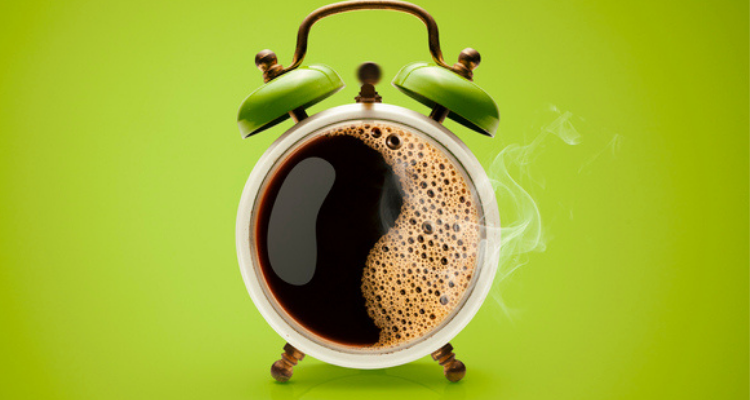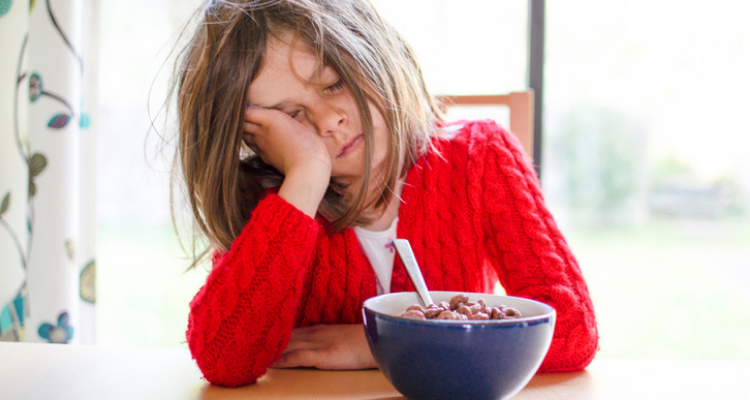
The morning cup of joe is a comforting, stimulating start to most people’s day.
Enjoying coffee in moderation is fine for many people. However, depending on coffee to combat low energy throughout the day likely points to an underlying cause of tiredness. Studies show that the body builds a tolerance to coffee, interfering with natural energy production and high-quality sleep.[1]
Pinpointing and supporting the root causes of low energy is critical for overall health, and it’s important to find ways to naturally boost energy without coffee or other caffeinated beverages. Read on to learn why our society is becoming increasingly tired, along with nine ways to tackle ongoing low energy levels.
The Low-energy epidemic: why are we so tired?
Depending on coffee or any other stimulant to boost energy is a sign that something isn’t right. Before learning strategies to address low energy without coffee, it’s key to understand why you might feel tired in the first place.

blood sugar dips and spikes
A common cause of daytime sleepiness or sluggishness—especially after eating—is a dip in blood sugar (aka blood glucose). This crash can happen if you eat a meal or snack high in refined carbohydrates or sugars, which spikes blood sugar before leading to a subsequent dip accompanied by discomforts like tiredness, head pain, irritability, and cravings for more carbs and sugar.
Examples of high-carb and high-sugar meals would be large portions of white bread, white pasta or white rice, cookies, cakes, candies, soda, fruit juices, and many commercially prepared baked goods.
nutrient deficiencies
Low levels of certain nutrients might also contribute to low energy. In particular, a deficiency in iron, B vitamins, vitamin D, magnesium, copper, manganese, and CoQ10 can be an underlying cause of low energy, as they play essential roles in the body’s biochemical energy-making processes.
Deficiencies can also be rooted in a diet that is too low in calories, lack of fresh fruits and vegetables, and insufficient amounts of protein or healthy fats. Speak with your provider as to whether a high quality multi vitamin might help fill in any existing nutritional gaps.
underlying health issues
Aside from common seasonal germs, acute viruses, or illnesses that leave your body needing extra rest, chronic health problems can also be at the root of low energy.
Issues that commonly contribute to feeling tired include a low-functioning thyroid, suboptimal iron levels, overall body discomfort, autoimmune problems, and persistent low mood or sadness. If you suspect that a medical problem is causing your low energy, speak with your doctor.
medications
Some medications can also contribute to low energy, sluggishness, or sleepiness, including blood pressure medications, statins, proton pump inhibitors, benzodiazepines, antihistamines, antidepressants, antibiotics, and diuretics. These will not cause low energy for everybody, but if you suspect a medication is a problem, talk with your doctor about adjusting the dosage or other possible solutions.
high stress
Ongoing levels of high stress can cause low energy for several reasons. Elevated stress hormones contribute to blood sugar imbalances, impacting sleep, mood, energy, and motivation. Modern-day living can be stressful, so it’s critical to look at your primary sources of stress and determine what is in your control to change.
strategies to boost energy without coffee
Along with addressing any potential underlying issues to low energy, the following nine strategies will help you boost energy without coffee or other stimulants while naturally supporting specific root causes.
eat for balanced blood sugar
Limit or omit highly refined carbohydrates and sweets, and instead stick to whole grains, sweet potato, potato, and other root vegetables for starchy carbohydrates. Fill half of your plate with colorful vegetables and fruits (heavier on the vegetables). Include one serving of animal or plant-based protein and a serving of healthy fat like olives and olive oil, coconut oil, avocado, nuts, or seeds.
limit snacking
Allowing time between meals for your insulin levels to decrease and digestion to take place is optimal for energy levels. If you feel hungry shortly after eating a full meal, this could be a sign that your meal didn’t meet your body’s nutrient needs, potentially lacking in protein, fiber, and healthy fats.
If you struggle with blood sugar issues and need to reach for a snack between meals, try to keep healthy snacks on hand. Hard-boiled eggs, 1/4 cup nuts or seeds, a whole foods protein bar (like RX bars), or plain yogurt with berries are all excellent choices.
get more exercise
Getting regular physical activity can significantly improve energy and support better sleep. According to the CDC, adults should strive for at least 150 minutes per week of moderate exercise, which breaks down to 22 minutes per day.[2]
skip processed foods
Highly processed and packaged foods often contain ingredients unfavorable to sustained and optimal energy levels, like refined sugar. You can think of these foods as “empty calories,” or food products that don’t offer many nutritional benefits in the form of energy-boosting vitamins, minerals, and phytonutrients. Many breakfast cereals, cookies, cakes, and flavored yogurts fit into this category.
The sugar and low fiber content of many processed foods is one of the biggest culprits of low energy. They cause a rapid increase in blood sugar, leading to an energy spike and crash, and often contributing to increased sugar cravings.[3]
drink green tea
A standard eight-ounce cup of coffee contains approximately 95-200 mg of caffeine, while the same amount of green tea contains closer to 25-45 mg. Green tea also offers several impressive health benefits, such as improved brain function, better exercise performance, increased fat burning, and powerful antioxidant properties.[4]
stay hydrated
Even low to moderate dehydration can decrease energy, lower mood, and worsen cognitive performance.[5] Strive for at least half of your body weight in pounds in ounces of water per day. For example, a 150-pound person should drink a minimum of 75 ounces of water each day.
check hormonal balance
Hormonal issues are one of the primary underlying causes of excessive tiredness during the day—especially disruptions to cortisol, thyroid, estrogen, progesterone, testosterone, and insulin levels. If you suspect a hormonal issue, speak with an integrative provider for testing.
take a power nap
While short naps don’t work for everyone, some find them helpful to combatting daytime tiredness. Studies show that any nap under 90 minutes helps improve sleepiness and boost cognitive function. However, longer naps seem to increase grogginess and interfere with nighttime sleep.[6]
Since the length of each individual’s sleep and wake cycles differ, you can experiment with what length of nap leaves you feeling refreshed. For some, this might be as little as 15-20 minutes, and for others, it could be 60-90 minutes.
get in a 5-minute workout
Exercise boosts endorphins; hormones released when the body carries out an activity that requires a burst of energy. These hormones give exercisers a “runners’ high,” which can occur with any type of exercise.
If you struggle to fit in a longer workout, rest assured that research shows that as little as five minutes can make a difference in energy and physical fitness. Especially effective is a short burst of higher intensity activity throughout the day such as burpees, jump rope, squat jumps, or sprints. Short bursts of exercise have also been shown to decrease appetite and overall calorie consumption.[7]
takeaway
If you enjoy one to two cups of coffee in the morning and have normal energy levels throughout the day, there is likely no reason to stop. However, if your sleep is suffering or you find yourself increasing your coffee intake to combat low energy, consider adopting the above strategies to address underlying causes and speak with your provider about whether a medical condition or medication might be at the root of your tiredness.

[1] Holtzman SG, Finn IB. Tolerance to behavioral effects of caffeine in rats. Pharmacol Biochem Behav. 1988 Feb;29(2):411-8. doi: 10.1016/0091-3057(88)90179-7. PMID: 3362935.
[2] Puetz TW. Physical activity and feelings of energy and fatigue: epidemiological evidence. Sports Med. 2006;36(9):767-80. doi: 10.2165/00007256-200636090-00004. PMID: 16937952
[3] Avena, N. M., Rada, P., & Hoebel, B. G. (2008). Evidence for sugar addiction: behavioral and neurochemical effects of intermittent, excessive sugar intake. Neuroscience and biobehavioral reviews, 32(1), 20–39. https://doi.org/10.1016/j.neubiorev.2007.04.019
[4] Chacko, S. M., Thambi, P. T., Kuttan, R., & Nishigaki, I. (2010). Beneficial effects of green tea: a literature review. Chinese medicine, 5, 13. https://doi.org/10.1186/1749-8546-5-13
[5] Ganio MS, Armstrong LE, Casa DJ, McDermott BP, Lee EC, Yamamoto LM, Marzano S, Lopez RM, Jimenez L, Le Bellego L, Chevillotte E, Lieberman HR. Mild dehydration impairs cognitive performance and mood of men. Br J Nutr. 2011 Nov;106(10):1535-43. doi: 10.1017/S0007114511002005. Epub 2011 Jun 7. PMID: 21736786.
[6] https://agsjournals.onlinelibrary.wiley.com/doi/full/10.1111/jgs.14368
[7] https://onlinelibrary.wiley.com/doi/full/10.1002/oby.20335


















